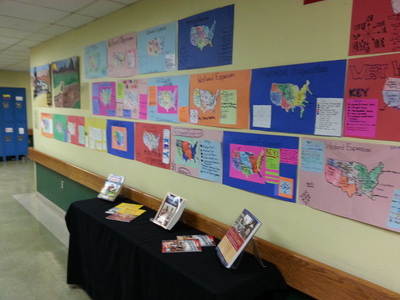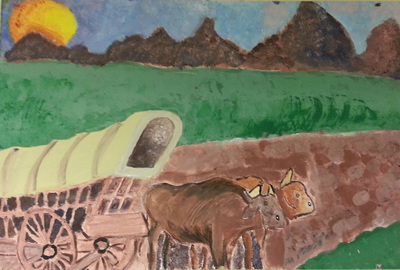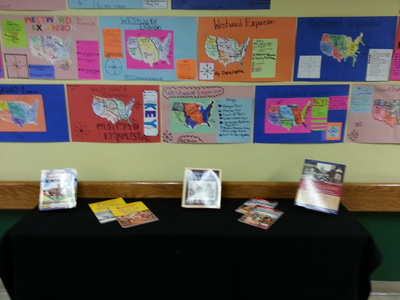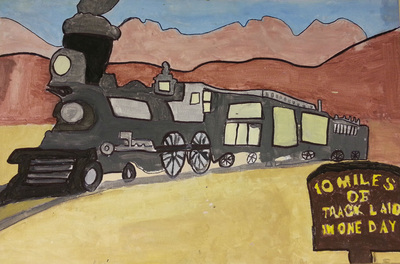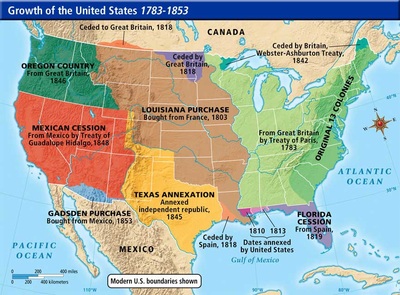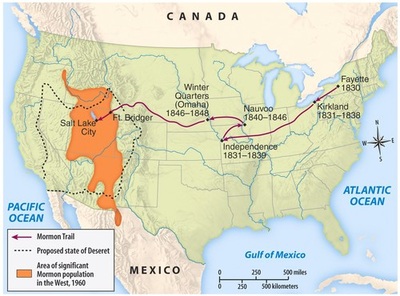westward expansion
What are the motivations, possibilities, and consequences when groups of people move to new land?
It took American colonists one hundred and fifty years to move as far west as the Appalachian Mountains, just a few hundred miles from the Atlantic Ocean. It took another fifty years to push the frontier to the Mississippi River. Looking for cheap land and inspired by the belief that Americans had a “manifest destiny” to occupy the whole continent; pioneers had, by 1850, pushed the edge of the frontier south to Texas and west to the Pacific Ocean. However, the land that settlers moved onto was often already occupied by people who had lived there for more than a thousand years. These people were forced to leave their homes and move to strange lands far to the west. Settlers justified this action by saying it was their right to occupy and develop all the land between the Atlantic and Pacific oceans.
Enduring Understandings
Enduring Understandings
- The westward expansion of the United States was closely related to the concept of Manifest Destiny, which many used as justification for America’s territorial expansion.
- The story of westward expansion involved settlers moving onto land already occupied by Native Americans and other groups of people.
- Life in the West was very challenging and did not generally live up to the idealized and romantic notions that people sometimes have ascribed to it
- Westward expansion involved not just white Europeans, but immigrants and slaves as well
- Why did Americans of European descent feel so compelled to expand the country westward?
- What might 19th-century Native Americans have said about Manifest Destiny? Why would they have taken this perspective?
- What would it have been like to walk in the shoes of a 19th-century settler in the West?
- What did 19th-century federal legislation and military activity reveal about the government’s attitude toward westward expansion?
- In what ways did western expansion rely on immigration?
Fellow student of history Anna Suggested this excellent site on the California Gold Rush. Thanks Anna!
Click here for descriptions of the trails different groups took westward.
Click here for a source about the Westward Expansion of settlers, political effects of this expansion, and various videos.
Click here for a series of articles related to the Westward Expansion of settlers and related political events.
Click here for a source about Indian Removal and the Trail of Tears.
Click here for a source about the Mormons' move west.
Click here for a video about one family's journey to California in 1849 (including an actress reading part of the diary of a 14-year-old on that trip).
Click here for a video about the first white settlers to settle on the Plains (after the transcontinental railroad was built).
PARCC Video about the Transcontinental Railroad
Click here for descriptions of the trails different groups took westward.
Click here for a source about the Westward Expansion of settlers, political effects of this expansion, and various videos.
Click here for a series of articles related to the Westward Expansion of settlers and related political events.
Click here for a source about Indian Removal and the Trail of Tears.
Click here for a source about the Mormons' move west.
Click here for a video about one family's journey to California in 1849 (including an actress reading part of the diary of a 14-year-old on that trip).
Click here for a video about the first white settlers to settle on the Plains (after the transcontinental railroad was built).
PARCC Video about the Transcontinental Railroad
